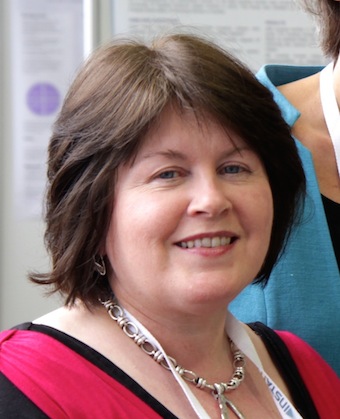Partnership working: specialist palliative care and intellectual disability services
Dr Dorry McLaughlin, Lecturer in Palliative Care and Chronic Illness, Queen’s University, Belfast, Northern Ireland, UK, explains the background to her longer research article that was selected as Editor’s Choice in the December edition of Palliative Medicine.
Working for many years in hospice care I became aware that people with intellectual disabilities were seldom referred to our services. Palliative care for people with intellectual disabilities was also part of the focus of conferences that I attended and the need to widen access to disadvantaged groups of people of which this population are one. It was clear from the literature, policy documents and the media that concerns were emerging around the quality of care that people with intellectual disability could receive. The idea of palliative care and intellectual disability services working more closely together, rather than separately, was also coming through as a central theme in published literature. What was interesting to learn was the similar philosophies and history that palliative care and intellectual disability services had – one that helped people to live fully what was left of their life and the other to live fully with a disability.In Northern Ireland in 2007, we facilitated the first regional conference and workshop in this area of practice, which was attended by 80 health and social care professionals from palliative care and intellectual disability services. Since then a number of other workshops and conferences have been held in the province and gradually an interest and commitment to this area of practice has been growing. Working actively and closely with the national/international Palliative Care for People with Learning Disability Network has been a key part of this.
Achieving funding for the doctoral study, from which this paper is based, helped to scope and explore end of life care for people with intellectual disabilities in our region of the United Kingdom. This study also identified the unmet learning needs of health and social care professionals and importantly how palliative care and intellectual disability services could best collaborate to enable people with intellectual disability to die well. I hope this paper will promote greater understanding of partnership working between these two services. I hope that it will also demonstrate how fundamental joint working and learning are – with the person with intellectual disabilities and family carers at the centre.
You can download a free copy of the longer article…

This post relates to the longer article, ‘Developing a best practice model for partnership practice between specialist palliative care and intellectual disability services: a mixed methods study’ by D McLaughlin, O Barr, S McIlfatrick and R McConkey, Palliat Med December 2014 Vol. 28 (10); 1213-1221. Published online before print 19 September 2014; DOI: 10.1177/0269216314550373.
EAPC members and registered users of the EAPC website can download a free copy of this article and other ‘Editor’s choice’ papers from the EAPC website. (You may need to register or login to download this paper; if so, follow the instructions in the top right-hand corner of EAPC home page and scroll down to download the article). Click here to view other EAPC-originated papers.
Links
- European Association for Palliative Care Task Force on Palliative Care for People with Intellectual Disabilities: Best practice guidelines and core standards.
- Palliative Care for People with Learning Disability Network.

No comments:
Post a Comment